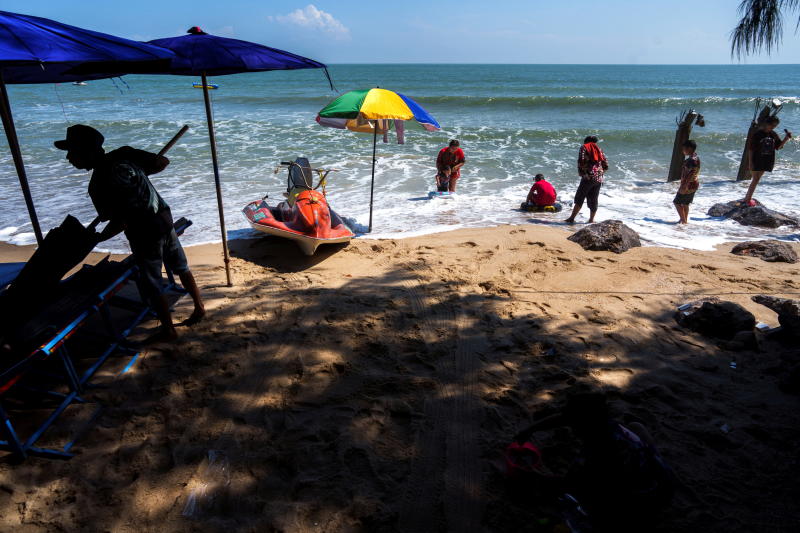
The level 4 alert issued by the United States Centers for Disease Control and Prevention (CDC) against Thailand should not create a huge impact on tourism as the sector is already weak, according to Tourism Authority of Thailand (TAT) governor Yuthasak Supasorn.
The CDC this week added Thailand to a list of level-4 destinations, advising Americans to avoid travelling there due to a high rate of Covid-19 transmission in the country.
Mr Yuthasak said the warning was the same as that issued last year when the infection rate peaked at more than 20,000 cases per day.
From previous experience, he said this step alone should not have a large bearing on tourists' decisions.
However, rising inflation and soaring travel costs as a result of higher oil prices are seen as the main obstacles for the international market this month.
The TAT previously expected to earn 26 billion baht from 338,645 foreign tourists in the first quarter, but due to the political climate and unfavourable economic situation, the actual numbers might be 30% below the targets.
The authority on Wednesday also held a meeting with the private sectors from Phuket, Pattaya, Surat Thani and Krabi to evaluate the impact of the Russia-Ukraine war.
The cabinet meeting on Tuesday asked the Tourism and Sports Ministry to identify tourists who really need assistance and earmark essential aid for them.
The ministry said 20,000 Russians are in Thailand, but surveys have found there are only 6,577 tourists, with the rest being long-stay travellers such as businessmen or those who have families and may not need assistance.
Mr Yuthasak said Russians and Ukrainians had to register through their embassies or consulates and indicate their requirements. They will then be categorised into three groups, comprising those who want to return home, those who are having transaction problems due to economic sanctions, and those in need of humanitarian assistance.
The visa extension fee waiver will be applied to those who face difficulties getting home, but not all visitors.
